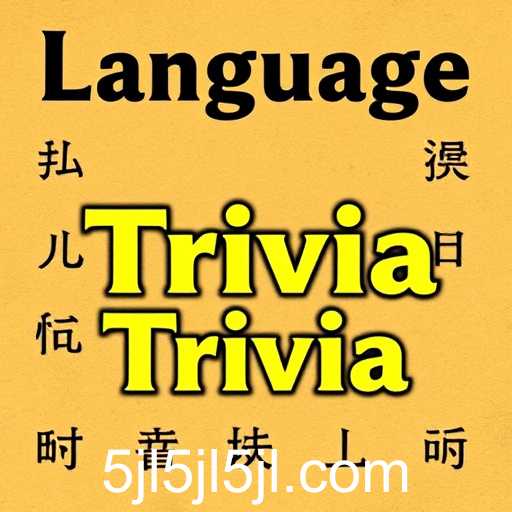An in-depth look at the captivating details and challenges behind the Language Trivia category, a popular choice for trivia enthusiasts.
Language is more than just a means of communication; it's an intricate system filled with history, culture, and fascinating nuances that captivate linguists and trivia enthusiasts alike. The 'Language Trivia' category on various platforms, identified by the keyword '5jl', invites players to delve into this world of words and grammatical wonders, challenging their knowledge across a variety of linguistic topics.
One of the main appeals of language trivia is its vast diversity. With over 7,000 languages spoken around the world, the possibilities for trivia questions are virtually endless. Participants might find themselves asked to identify ancient languages that have made a resurgence, like Cornish in the UK or to distinguish between dialects that are spoken within just a few miles of each other, such as Geordie and Scouse in England.
Moreover, language trivia isn't limited to spoken word; it extends to written scripts and alphabets. Enthusiasts could be quizzed on everything from deciphering ancient hieroglyphs to understanding the intricacies of the Korean hangul or the Cyrillic alphabet. Questions might range from recognizing the number of characters in the Thai script to the history behind the development of Braille.
Another layer of complexity in language trivia comes from etymology, the study of word origins. Players might need to trace the journey of words through history, discovering Latin roots in English, or how the Norman Conquest introduced French vocabulary into the English language. Understanding these connections can provide insights not only into the words we use but also into the historical events that shaped societies.
Idioms and proverbs from different languages also make for compelling trivia topics. Phrases like 'it's raining cats and dogs' may have equivalents in other languages, such as 'llueve a cántaros' in Spanish, creating intriguing questions about cultural perspectives and linguistic expressions.
For those who are passionate about languages, these trivia challenges offer a chance to not only test their knowledge but expand it. Each question provides an opportunity to learn something new, whether it’s about a lesser-known language, a unique dialect, or a fascinating fact about the evolution of language itself. Therein lies the allure of language trivia, a journey of discovery and appreciation for one of humanity’s most essential tools.




